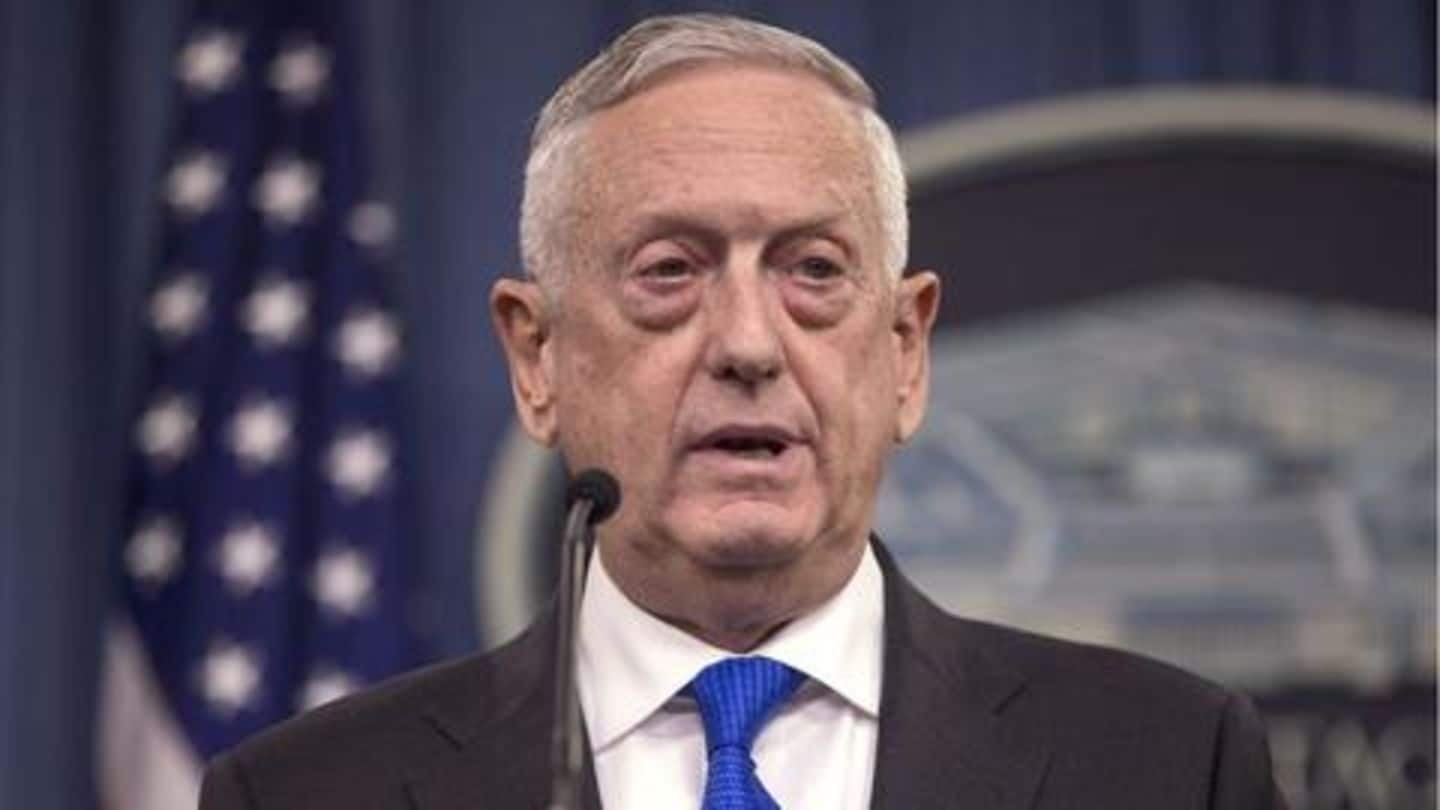
US: Mattis resigns as Defense Secretary over differences with Trump
What's the story
After two years in office, US Defense Secretary James Mattis has resigned from his post, reportedly over differences with US President Donald Trump, especially pertaining to matters of foreign policy.
The resignation of Mattis, who was seen by many as a much-needed calming presence in the freewheeling Trump presidency, coincides with Trump's decision to pull US troops out of Syria.
Here are the details.
Twitter Post
Trump announces Mattis' 'retirement'
General Jim Mattis will be retiring, with distinction, at the end of February, after having served my Administration as Secretary of Defense for the past two years. During Jim’s tenure, tremendous progress has been made, especially with respect to the purchase of new fighting....
— Donald J. Trump (@realDonaldTrump) December 20, 2018
Resignation
What Mattis had to say in his resignation letter
In the resignation letter Mattis submitted to the White House late on Thursday, he highlighted some of the differences between himself and the President.
Stating that the US derives its strength from allies, and has to be "clear-eyed" about threats like the Islamic State (IS), Mattis said that Trump deserved someone else in the post who would be "better aligned" to his outlook.
Letter
Mattis' resignation letter is rather revealing
Indeed, Mattis' resignation letter itself is revealing.
In saying that he disagreed with Trump on "treating allies with respect and also being clear-eyed about both malign actors and strategic competitors", Mattis has, wittingly or unwittingly, highlighted Trump's myopic view of the world order.
Further, the letter carried no customary courtesies toward the President - not even a final 'Respectfully Yours'.
Flashpoint
Factors leading to Mattis' resignation
While Trump and Mattis are distinctly different personalities, it's believed that differences between the two reached a point of no return when Trump decided to withdraw US troops from Syria.
Reportedly, an argument broke out when Mattis urged Trump to reconsider his decision. This culminated in Mattis' resignation.
It's understood that Trump's plan to withdraw from Afghanistan also played a role in Mattis' resignation.
Differences
The mercurial Trump and the cool-headed Mattis were at odds
The differences between Trump and Mattis cannot be overstated.
While the mercurial Trump is impulsive, provocative, and views the world through a cost-benefit lens, Mattis, a combat veteran with 44 years of experience, is characterized by self-restraint and loyalty to his nation and his ideals.
An avid reader, Mattis would always consider the ramifications of decisions, rather than jumping head-first into action.
Stability
The 'warrior monk' brought stability to the Trump administration
Understandably, Mattis was viewed as a stabilizing influence in the chaotic Trump presidency, and commanded the respect of Democrats and Republicans alike.
The 'warrior monk', as Mattis was known, was also seen as a bulwark against Trump's more isolationist and extreme impulses, and would often give the President advice that he disliked, but needed to hear.
Policy
Trump's isolationist tendencies clashed with Mattis' world view
These pieces of advice would often pertain to US foreign policy, especially the US' commitments towards its allies and international organizations like NATO and the UN.
While Trump saw the world as a bunch of freeloaders burdening the US with increasing costs, Mattis saw the US' role in the international order as one of prime importance - as a bulwark against chaos.
Uncertainty
Uncertainty on the cards for the US
Given this fact, Mattis viewed Trump's decision to withdraw from Syria as a sign of the US backing away from its commitment to being a pillar of the international order.
While Mattis' departure is bound to affect US foreign policy and the country's relationships with allies, it will also create uncertainty and chaos within the Trump administration.
It remains to be seen what happens now.